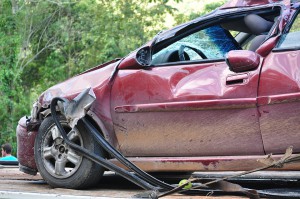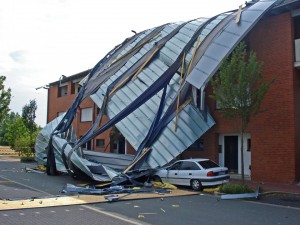The idea behind insurance is that there are random bad – and expensive – things that happen to just about anyone. Car crashes, medical emergencies, and other problems that can destroy your personal saving and investing plans if they happen.
How Does Insurance Work?
 To protect against this, insurance companies work to pool the resources of many people together in one group. Each member of the group pays in, which is called a Premium. If members of the group are hit with the issue that the insurance is designed to protect against, the insurance pool will use the premiums of all the other members to help pay for it. In other words, insurance is a way to protect against risk.
To protect against this, insurance companies work to pool the resources of many people together in one group. Each member of the group pays in, which is called a Premium. If members of the group are hit with the issue that the insurance is designed to protect against, the insurance pool will use the premiums of all the other members to help pay for it. In other words, insurance is a way to protect against risk.
Insurance usually does not cover 100% of of the cost – the person making a claim needs to pay a certain amount themselves before the insurance coverage “kicks in”. This amount is called the deductible.
There are different types of insurance designed to protect against different types of risk, but they generally fall into 4 categories: Car Insurance, Property Insurance, Health Insurance, and Life Insurance.
Car Insurance
Car insurance, or auto coverage, is insurance you get to protect against risk while driving. There are four types of car insurance: Liability, Personal Injury, Collision, and Uninsured Protection. All car insurance policies are a combination of these four types.
Liability Coverage
 “Liability” coverage is required in most states if you want to drive. This coverage exists to pay the repair and medical costs of any property or person damaged as part of an accident that was your fault. Liability coverage is required because it makes it less risky for other drivers – if you crash into someone else, they know that their recovery costs will be covered by your insurance company. If you get into an accident with someone who does not have liability coverage, and it was their fault, your only option is to sue the other driver directly (and they probably do not have the money to pay for the damage anyway).
“Liability” coverage is required in most states if you want to drive. This coverage exists to pay the repair and medical costs of any property or person damaged as part of an accident that was your fault. Liability coverage is required because it makes it less risky for other drivers – if you crash into someone else, they know that their recovery costs will be covered by your insurance company. If you get into an accident with someone who does not have liability coverage, and it was their fault, your only option is to sue the other driver directly (and they probably do not have the money to pay for the damage anyway).
Liability coverage does not cover you or your own vehicle, it only covers damage that you cause while driving. If you are hit by someone else driving with liability insurance, their coverage will pay for your repair costs, medical bills, and other expenses instead of your own insurance based on how much at fault the other person was. For example, if both people in a car crash are equally at fault, each person’s liability coverage will pay 1/2 of the other person’s expenses.
Personal Injury
Personal injury coverage exists to cover your own medical expenses in the event of a car accident, regardless of who is at fault. Personal injury coverage is optional, but if you are even 10% responsible for the crash, you will have to pay 10% of your medical bills out-of-pocket if you don’t have personal injury coverage.
Collision Coverage
Collision Coverage covers the repair or replacement cost of your vehicle, regardless of who is at fault. Collision coverage is generally less important than personal injury coverage, but if you have an expensive car, you will be more likely to get collision coverage to protect against potential repair costs.
Uninsured Protection
Determining Your Car Insurance Premiums
Your car insurance premiums depend on a lot of factors, but it basically boils down to the fact that the more likely the car insurance company thinks you will cost them, the more they will charge you. This means if you are in an age group that is more likely to be in an accident (like a young driver), have a very expensive car (which costs more to repair), or have a history of a lot of accidents, your premiums will go up.
On the other hand, your premiums will go down if there are lots of factors pointing towards it being unlikely that you will need to file a claim. This includes a history of being a safe driver, if you own a car that is safe to drive and inexpensive to repair, and if you live in an area with low crime (so your car is less likely to be damaged or stolen by thieves) and few accidents.
Property Insurance
Property insurance started out as insurance policies to protect against fires, but today it also helps protect against theft, faulty construction, lightning strikes, and other potentially expensive disasters.
Homeowners Insurance
 If you own your home, you will probably want homeowner’s insurance. If you have a mortgage on your home, your bank or mortgage company will probably require you have homeowners insurance to help protect your investment.
If you own your home, you will probably want homeowner’s insurance. If you have a mortgage on your home, your bank or mortgage company will probably require you have homeowners insurance to help protect your investment.
Homeowner’s insurance covers basically everything in your home. Even if you accidentally break a dish, your homeowner’s insurance probably covers it (but you still need to pay the deductible, which is probably a lot more expensive than just replacing the dish).
One problem with filing a claim usually comes from proving you owned something in your home to begin with. Home insurance companies generally recommend people walk through their home with a video recorder once per year to document everything in the home, this way the video can be used later to show that something was in the home before it was stolen or destroyed.
Homeowner’s insurance generally gets more expensive with older buildings with out-of-date or unsafe electrical wiring and plumbing, or homes in more crime-prone areas. Homeowner’s insurance gets cheaper for homes with more up-to-date insulation, wiring, plumbing, safer neighborhoods, better fire safety equipment (like lots of smoke alarms and even sprinklers), and better locks and safeguards against burglary.
Renter’s Insurance
Renter’s Insurance is a lot like homeowner’s insurance, but only for rented property. This means that renter’s insurance is typically much cheaper (since the renter is not usually liable for all damage to the building, the owner is) and easier to manage. If a building has a fire, for example, the owner’s insurance would cover the building repair, but the renter would not be compensated for their own things unless they have separate renter’s insurance.
Renter’s Insurance does not need to cover the building itself, but the likelihood that your stuff would be destroyed in a fire or stolen in a burglary mean that most of the same factors that make homeowner’s insurance cheaper or more expensive also impacts renter’s insurance. However, if you are on the ground floor of a building, your renter’s insurance will probably be more expensive than someone on the 10th floor, since your place would be more likely to be burgled.
Health Insurance

Health Insurance is designed to cover your expenses if you get sick, including all medication and hospital care. Health insurance is important – without it, you could find yourself in tens, or even hundreds, of thousands of dollars in debt if an unforeseen medical emergency occurs.
Health insurance is typically provided by your employer, but many independent contractors and lower-paying jobs need to buy health insurance on their own (typically provided by an exchange system). Everyone who can afford health insurance is required by law to have it (since 2014) unless they can show that they earn below a certain amount of money per year and cannot afford it.
For the elderly, Medicare is a national health insurance program that covers all medical costs of people over 65. For the poor, Medicaid is a national program providing health insurance to people earning below a certain threshold.
Life Insurance
For example, you might have a policy that has a $20 per month premium, which pays out $200,000 if you die to your survivors. However, if you live until age 65 and make payments for 25 years, the policy “cashes out” and pays you a lump-sum of $50,000 to use in your retirement account.
Pop Quiz
[mlw_quizmaster quiz=91]
